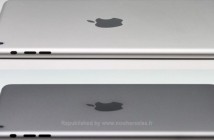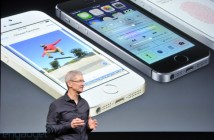 The latest indication that Apple is trying to strong-arm publishers to adopt HTML5 and H.264 came today, as Steve Jobs reportedly claimed by email that a patent pool was being assembled to “go after” Ogg Theora and other open source codecs. That news comes just a few weeks before Google is expected to release its VP8 codec as open source, and could come as a big blow to the search giant’s plans to offer an alternative to H.264.
The latest indication that Apple is trying to strong-arm publishers to adopt HTML5 and H.264 came today, as Steve Jobs reportedly claimed by email that a patent pool was being assembled to “go after” Ogg Theora and other open source codecs. That news comes just a few weeks before Google is expected to release its VP8 codec as open source, and could come as a big blow to the search giant’s plans to offer an alternative to H.264.
The whole thing began today after Hugo Roy, an intern at the Free Software Foundation Europe, published an open letter to Steve Jobs. In that letter he responded to Apple CEO’s “Thoughts On Flash,” in which Jobs wrote that the future of web video would be driven by HTML5 and H.264. Roy argued against Apple’s adoption of H.264 because the codec is not open, but covered by patents and licensed by MPEG LA.
Well Jobs wrote back, warning that open source codecs like Ogg Theora may soon be taken to court for infringing on others’ patents:
“All video codecs are covered by patents. A patent pool is being assembled to go after Theora and other “open source” codecs now. Unfortunately, just because something is open source, it doesn’t mean or guarantee that it doesn’t infringe on others patents. An open standard is different from being royalty free or open source.”
The email comes as a fight is brewing between major players over the future of web video. For Apple, that future is driven by HTML5 and H.264 encoding, in contrast to Adobe, which is pushing its proprietary Flash player for video playback. However, while most browser makers agree with HTML5 support, not everyone is fully on board with H.264 encoding.
Apple’s Safari, Microsoft’s IE9 and Google’s Chrome all support H.264 encoding for HTML5 video, but the Firefox and Opera web browsers refuse to get behind it, due to potential licensing issues. Even though H.264 licensing body MPEG LA announced in February that it was extending its royalty-free licensing for web video using H.264 through 2016, that was little consolation for Mozilla and others that are committed to supporting open standards.
Google was hoping to stem that divide by making VP8 open source and thus providing a high-quality and open alternative to existing codecs. Google’s plans to open-source the codec have been widely expected ever since it announced plans to acquire On2 in August 2009, and speculation intensified after the deal closed.
But without Apple and Microsoft on board, Google may have a tough time getting VP8 adopted by media publishers. And now that Apple’s CEO has confirmed plans for patent infringement suits against Ogg Theora and other open source codecs, Google may have even more issues to deal with.
Related content on GigaOM Pro: What Does the Future Hold For Browsers? (subscription required)

Continue to read on TheAppleBlog



